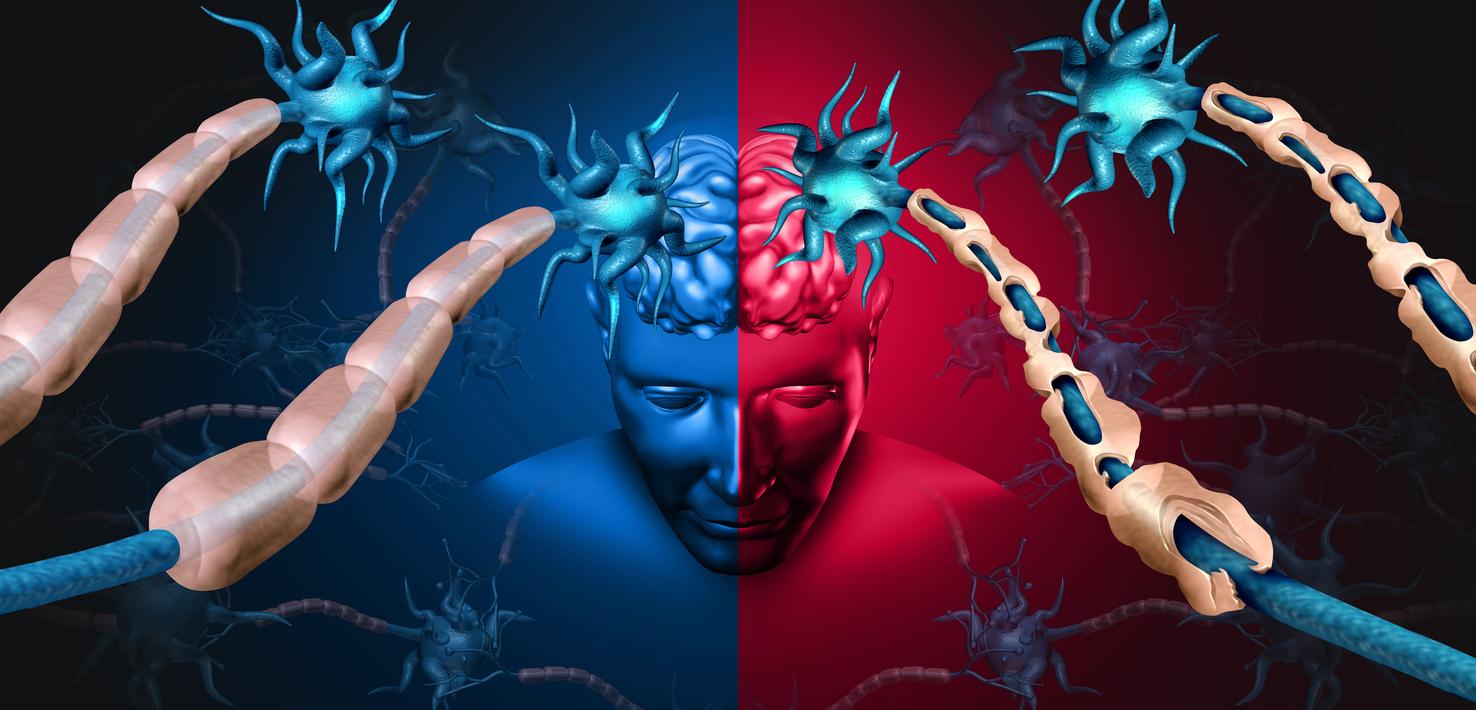Canadian researchers and a biotechnology firm have collaborated to develop a drug that aims to stop the progression of multiple sclerosis.

In recent years, new drugs have emerged in the fight against multiple sclerosis (MS). Primarily aimed at reducing the frequency of seizures or relieving symptoms, they are more or less effective.
Researchers at the Research Center of the Center hospitalier de l’Université de Montréal (CRCHUM) focused on a molecule called Melanoma Cell Adhesion Molecule (MCAM). By blocking it, it is possible to delay the onset of the disease and significantly slow down its progression.
Dr. Alexandre Prat, lead author of the study, professor in the Department of Neurosciences at the University of Montreal, explains “having identified a first therapy that will have an impact on the quality of life of people with multiple sclerosis by reducing significantly disability and disease progression ”.
The results of this work, carried out in vitro in humans and in vivo in mice, were published last Tuesday in the journal Annals of Neurology.
Need to block interaction
The brain is normally protected from attack by the blood-brain barrier known as the blood-brain barrier. Clearly, this barrier prevents cells of the immune system – lymphocytes – from entering the central nervous system. However, “in people with multiple sclerosis, there are leaks”, explain the researchers. Indeed, in these patients, two types of lymphocytes (CD4 and CD8), manage to cross the barrier. They attack the brain by destroying the myelin sheath that protects neurons, resulting in decreased transmission of nerve impulses and plaque formation.
In 2008, Dr Prat’s team had already identified the role of the MCAM molecule in the deregulation of the immune system observed in MS. “Our studies have shown that the MCAM molecule is necessary for the migration of CD4 and CD8 lymphocytes across the blood-brain barrier. If we block the interaction of MCAM with the protein to which it normally binds, we decrease the activity of the disease, ”emphasizes the author of the study.
A 50% decrease in disease
With the help of a biotechnology firm, Prothena, Canadian scientists “observed an approximately 50% decrease in disease in mice with a form of multiple sclerosis called Experimental Autoimmune Encephalomyelitis (EAE) . What is particularly interesting is that we can curb the disease from the first symptoms in addition to having an impact on its progression, which is a first, ”concludes Dr Prat.
The company intends to start clinical trials by the end of June to be able to develop a drug.
More than 80,000 patients in France
Multiple sclerosis (MS) is a disease that directly attacks the central nervous system (spinal cord, brain). The myelin sheath, which surrounds and protects nerve fibers, is destroyed by disease.
The latter is manifested by paralysis, numbness, loss of vision, deficits in balance and walking causing chronic disability in patients. According to figures from the League against Multiple Sclerosis, France has more than 80,000 patients, two-thirds of whom are women.
Each year, between 3,000 and 5,000 new cases are reported in France. After road accidents, MS is the second leading cause of disability among young people in France.
.















